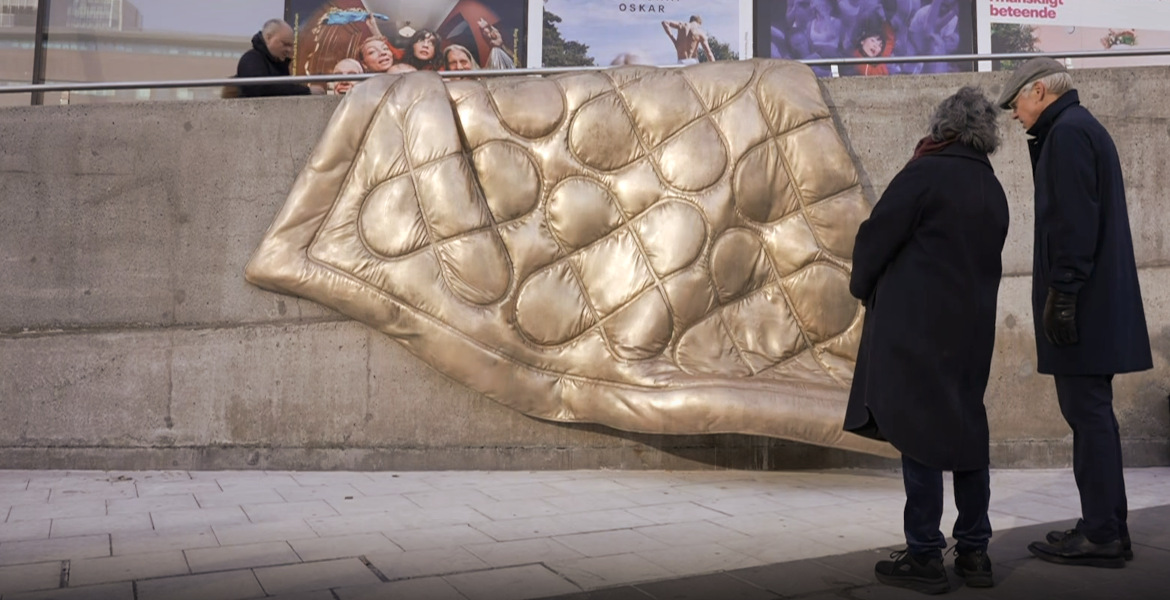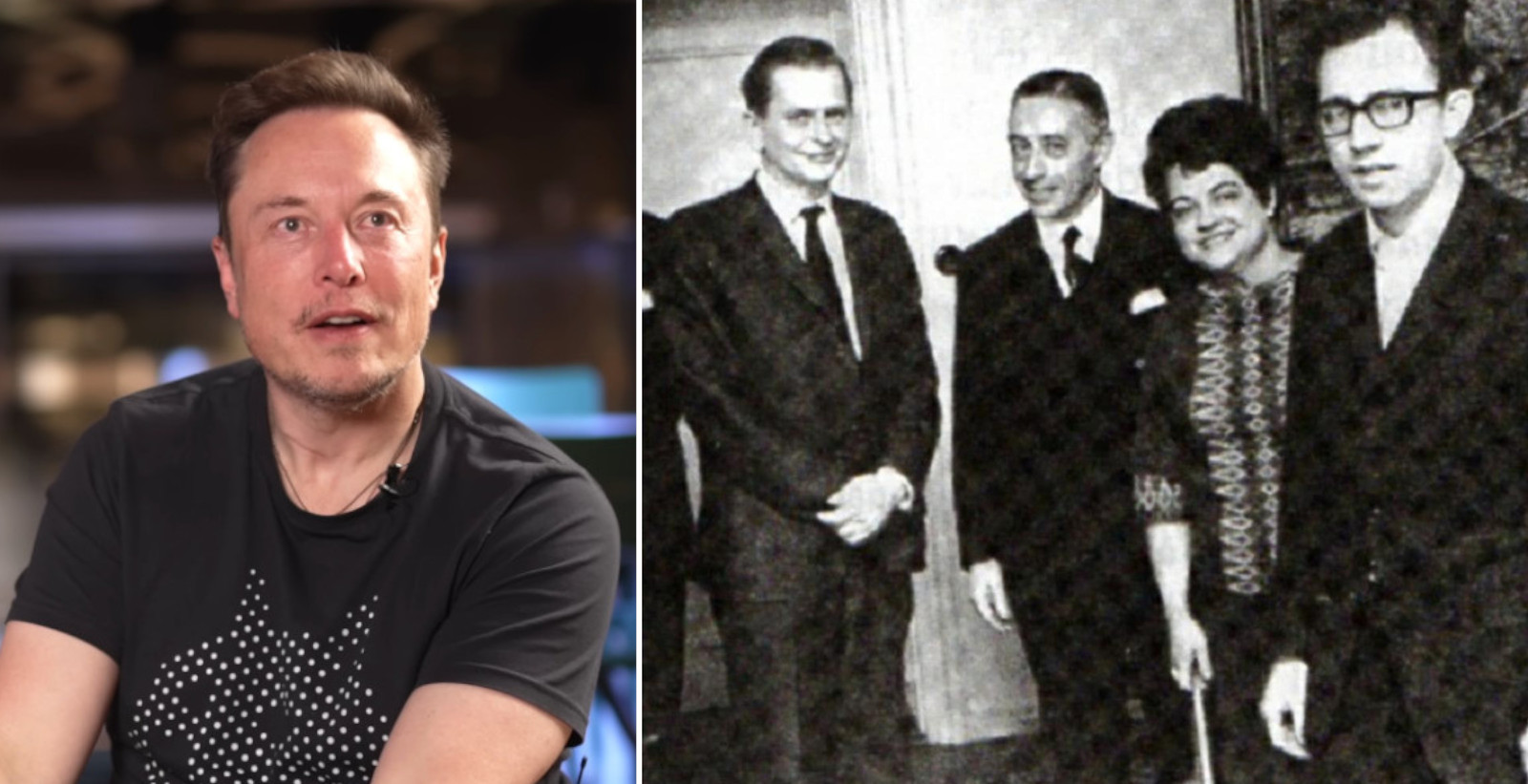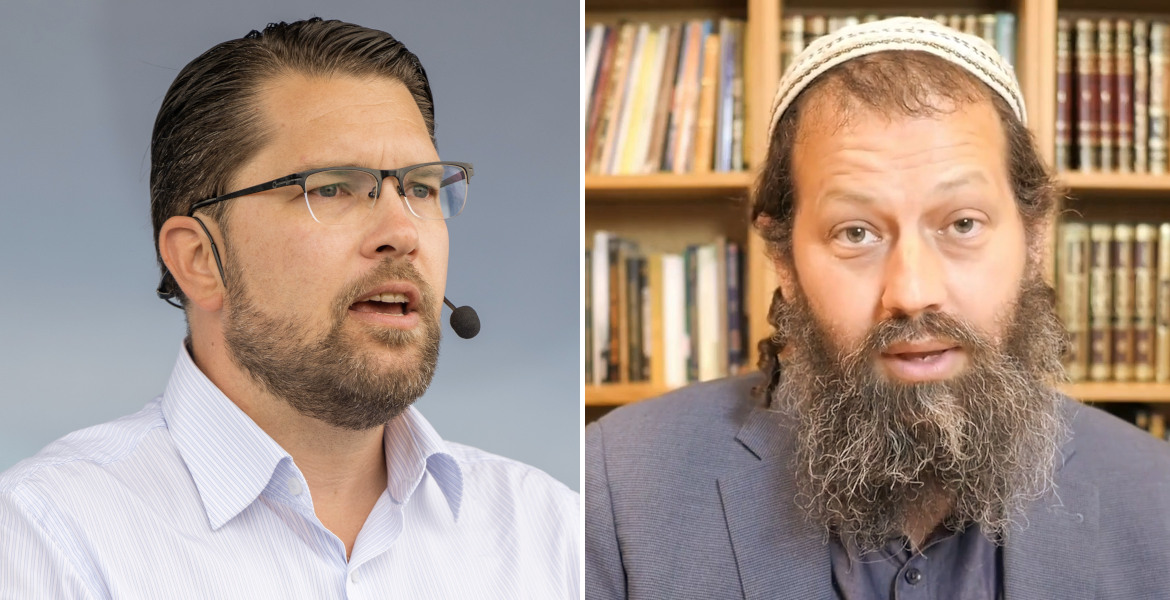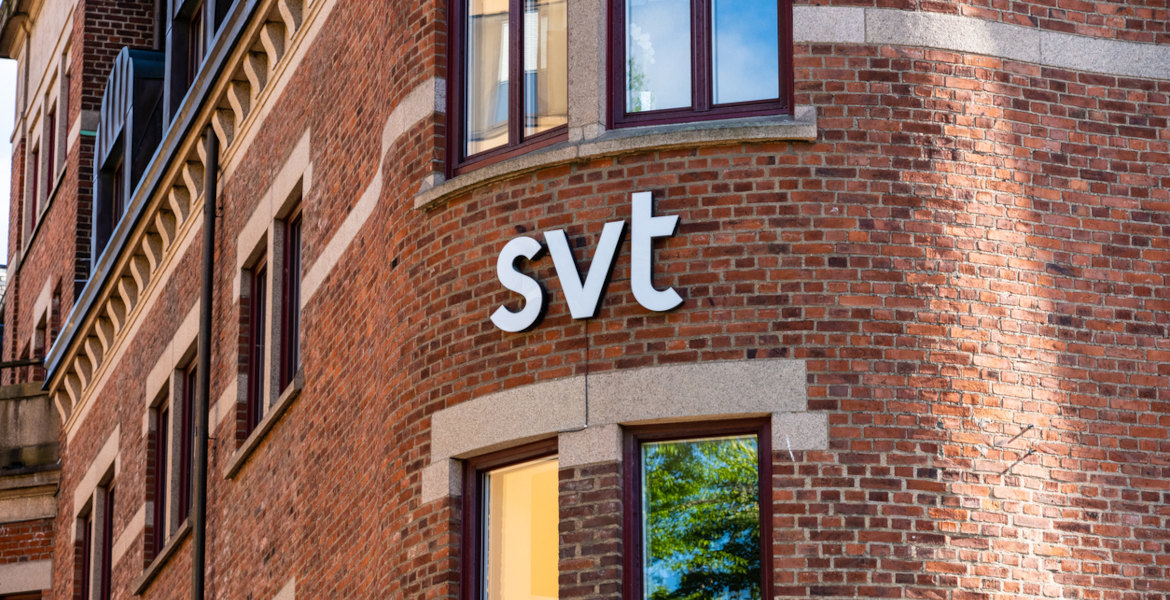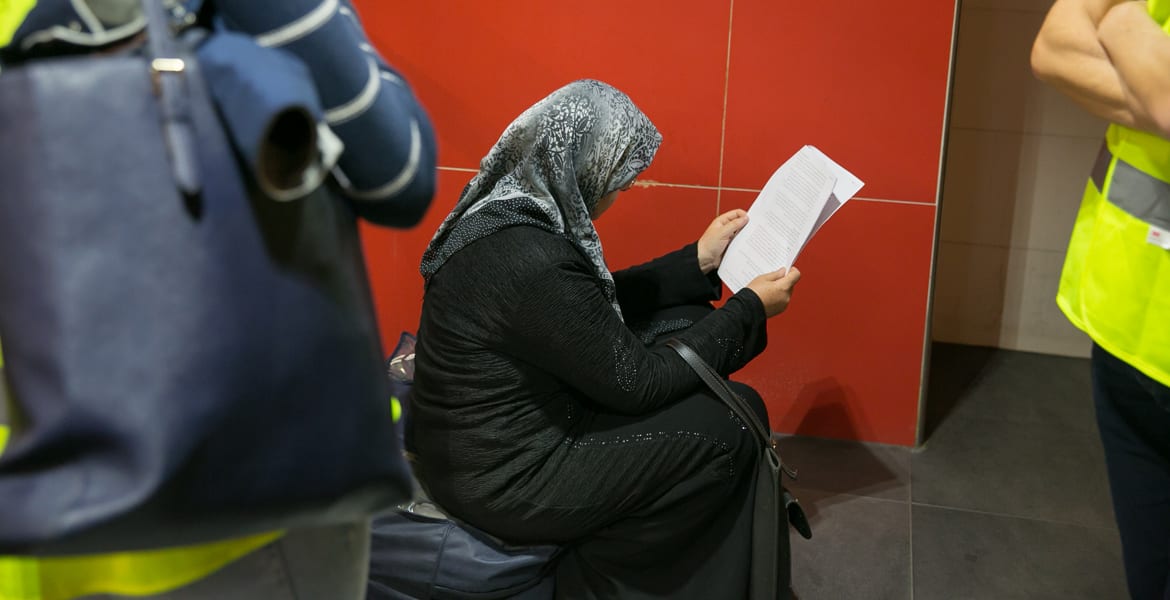A heated bronze blanket – that's the new memorial for the 2017 terror attack on Drottninggatan, Stockholm.
However, not everyone is impressed by "Sanctuary"(Fredad plats), as the artwork is called. British commentator Brendan O'Neill goes as far as to argue that the memorial "is profoundly insulting to the people who died in the terror attack".
Artist Ann-Sofi Sidén and architect Mats Fahlander are behind the monument – commissioned by the City of Stockholm. It was unveiled on Monday, the anniversary of the attack in which Rakhmat Akilov killed five people in a truck attack.
Although politicians themselves have praised the monument, criticism has been swift. Brendan O'Neill, editor of the online magazine Spiked, said it was outright inappropriate and insulting that the victims of the terror attack were "honored with something as bland and mundane" as a blanket thrown over a staircase.
– Every time there is an Islamist terrorist attack, we do the same thing. We lay a flower, we say a prayer, we might say something on social media. After the 2017 Manchester Arena terror attack here in the UK, everyone joined in the Oasis song 'Don't look back in anger', that was the hymn across the country, he said in an interview with Kvartal.
– I think we should commemorate these awful events by being angry about them, by asking difficult questions of our rulers Why is this happening, why are we not being kept safe and what is being done to tackle this poisonous ideology?
"Not the memorial the victims deserved"
O'Neill argues that memorials to Islamist terror attacks should honor and highlight Western values – rather than focusing on the grief of the attacks themselves.
– When we have monuments, which we should. I think they should be monuments to freedom, the values of Western civilization, that these terrorist attack, he argues.
Several other commentators have also expressed criticism – not least SvD editorial writer Paulina Neuding.
"Not the memorial that the victims, the survivors, the police, the people of Stockholm or the Swedes deserved", she writes, arguing that the West usually responds to Islamist acts of terror with "a quiet mildness".
Jag mår faktiskt lite illa när jag ser detta. Alla offren som miste sina liv låg dessutom under filtar på Drottninggatan. Bilden av Ebba liggandes på gatan komma jag aldrig att glömma. Detta monument över förlorad kärlek och ett liv tillsammans är en skymf mot de anhöriga.
— Betty (@MrsWalkieTalkie) April 8, 2025
Translation of above tweet: "I actually feel a little sick when I see this. All the victims who lost their lives were also lying under blankets on Drottninggatan. The image of Ebba lying in the street is something I will never forget. This monument, representing lost love and a life together, is an insult to the families of the victims".
State broadcaster SVT, however, is lyrical about the artwork - and culture editor Anders Jansson thinks it is particularly positive that "you will be able to walk past (the monument) without having to know why it is here".
"That, too, is a measure of quality", he says.
